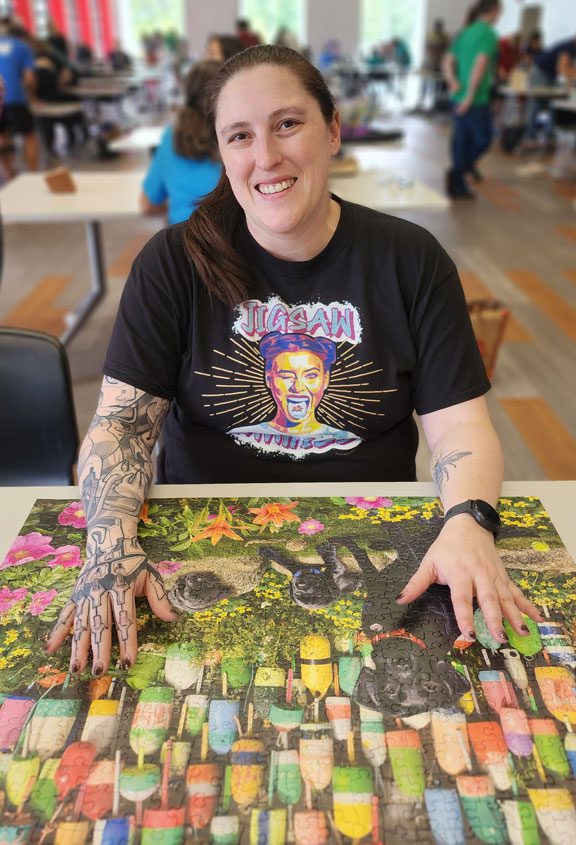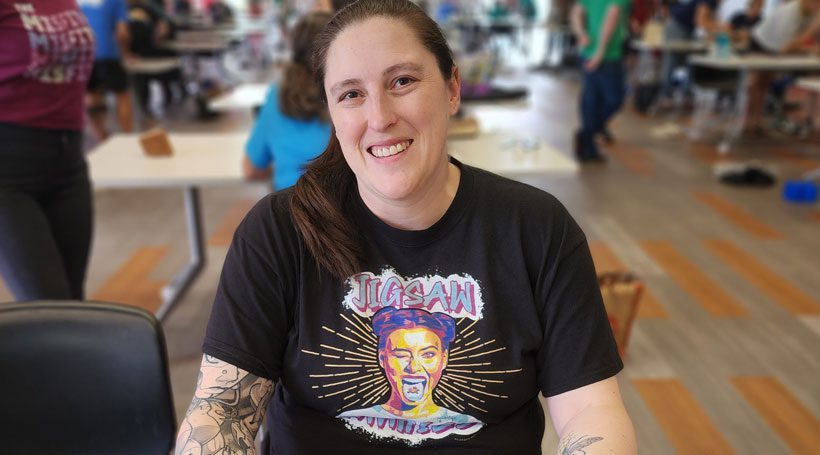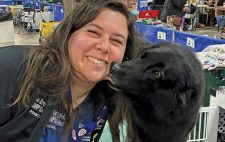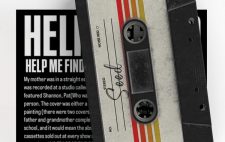
Katherine Dilks
Katherine Dilks leads a double life. By day, she’s a marriage and family therapist at a Voorhees practice. But after hours, the puzzles come out.
Dilks is one of the world’s best speed puzzlers. Before many casual gamers can get all the pieces out of a box, organized and started on the borders, she could already be done the entire thing, especially when she’s in the company of her puzzle partner or working with her team, the Jigsaw Junkies.
While she is ranked 15th nationally by the USA Jigsaw Puzzle Association and 15th globally, most people she encounters are unaware that the competitive puzzling world exists. As Dilks puts it, the most common reaction she gets when her talent comes up: “Wow, I didn’t even really know that was a thing.”
Speed puzzling is an emerging sport. To put it in perspective, while the average puzzler takes between 2 to 6 hours to finish a 500-piece puzzle, Dilks’ fastest time is 41 minutes flat. At the 2022 Worlds, a Spanish man set the world record, completing a 500-piece puzzle in a mere 34 minutes and 25 seconds.
Tracing back, the first World Championship took place in 2019, predating the 2020 inception of the national association. The pandemic advanced the puzzling frenzy. With the globe in a standstill, manufacturers were overwhelmed by skyrocketing demand. This surge wasn’t an anomaly. Historically, puzzles have been solace during tumultuous times.
Dilks hasn’t always been in the loop about competitive puzzling. Until 5 years ago, she felt alone in her exceptional skill, having never met anyone in South Jersey who shared her passion and speed at piecing together complete pictures. It was a random Google search that introduced her to this world. The discovery was intriguing to her but remained a side note until the pandemic. Confined to the apartment in Westmont she shared with her husband (not a speed puzzler), she revisited this interest and soon found herself preparing for what could best be described as the Olympics of puzzling with the Jigsaw Junkies.
“A few months after I joined a puzzle Facebook group, I saw a post asking if anyone was interested in forming a team to go to Worlds in Spain,” says Dilks, who has always been competitive, first as a soccer player growing up in Haddonfield and, in college, as an eSports gamer.
“I was absolutely interested. I’d been sitting at home for 8 months, bored out of my mind and I wanted to do stuff,” she says.
Dilks connected with the woman, and they struck up a friendship based on their common puzzling interest. But Dilks didn’t know how competitive she was until she timed herself on puzzles her new friend sent her in the mail.
“When I told her I completed them in under an hour, we were both happy. She told me that it usually takes people a lot of training to complete them in that amount of time.”
It was game on, and 2 additional teammates joined Jigsaw Junkies. After training separately and getting together just 2 times before the international event, they set off for the 2022 World Championship in Spain. The June gathering drew nearly 2,300 competitors from 44 countries, setting the record for the largest puzzling competition ever. The Jigsaw Junkies placed 3rd in the team event. They had the best showing of any U.S. team.

The Jigsaw Junkies at the world championship in Spain
From her impressive entrance into the world of speed puzzling, Dilks has since competed in several national competitions, placing 2nd in 500-piece teams and 3rd in 1000-piece teams at the 2024 Winter Carnival in Minnesota. She will attend the World Championship in Spain again this September, having been invited to compete on a team with Karen Puzzles, who has 281,000 subscribers on YouTube.
The U.S. speed puzzling community, with its strongholds in California and Minnesota, is close-knit and female-dominated. The sports’ most competitive players are young. Dilks, at 39, is on the older side as most competitive puzzlers are in their late 20s and 30s. Still, she doesn’t feel she’s at a disadvantage.
The increase in puzzling competitions throughout the country, including on the East Coast, suggests growth closer to home, although she knows of no other ranked competitors in South Jersey. However, there’s an active South Jersey Facebook group for puzzle swaps giving her hope.
She points out that, like many competitions, winning is not as simple as having more skill than your competitor. “Some people are better at some kinds of puzzles than others, and you never know what puzzle you will draw until it’s laid out in front of you.”
And the secret to her success? Regular practice and familiarity with all kinds of puzzles, she says. “It’s not so much about practicing doing puzzles quickly. You really just have to get your hands on puzzles constantly to stay nimble, and also you need to be practicing different strategies to figure out what works best for you.”
“Ultimately it’s important to practice the things you are not good at,” she says.
Dilks typically will solve 2 new puzzles each week to keep up her skills and will increase her time working on puzzles before competitions. Having recently earned her PhD, she has no plans of making her hobby a full-time profession. The sport hasn’t reached the stage where there’s any money in winning, she says, but that’s ok. She’s not in it for fortune or fame.
“We are a community of people who have found each other,” she says. This communal spirit is evident in their constant exchanges of puzzles and regular conversations.
“If I go home with a trophy, it’s awesome and I’m happy,” she adds. “For me it’s more about socializing with friends, travel and spending time doing what I love.”














